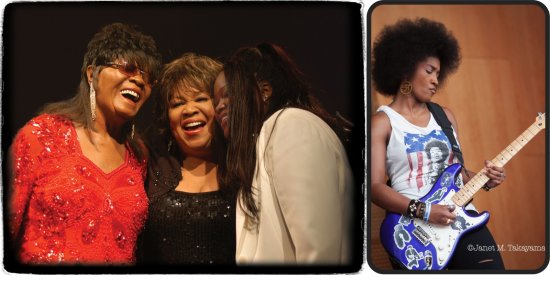| Women of the Blues: Voice of Social Consciousness |
 “You can’t have a movement without the music,” Pops Staples This year people may have been standing far apart, but they have stood closer together in thought and action for the first time since the Civil Rights Movement. Singing their way to justice. Singing truth to power. Women of the Blues are a voice of social consciousness. MAVIS STAPLES The Staple Singers gospel-folk performances at marches, rallies and churches, inspired participants to keep them in high spirits. Pops said about Dr. King, “If he can preach it, we can sing it.” Their song “Freedom Highway” was about the march. The first song Pops ever taught Mavis Staples and her siblings was “Will The Circle Be Unbroken,” clearly an anthem for today. Throughout her life Mavis Staples has been a champion for civil rights and social justice through her music. This was very apparent when Mavis teamed up with Chicago musician Jeff Tweedy’s “Peaceful Dream” on her 2017 album, If All I Was Was Black. Released in April 2020, All In It Together, has all proceeds going to My Block, My Hood, My City organization. KOKO TAYLOR “I’m A Woman” Queen of the Blues Koko Taylor sang as an expression of her deeply rooted connection to her youth growing up in Bartlett, Tennessee. According to her biography, Koko reflected on how a song she had learned from her father in the cotton fields, appeared on her album Old School, alongside her own compositions. “She grew up in blues culture, as a sharecropper and learning from listening to other singers, not just to records,” said Bruce Iglauer, Alligator Records founder. Koko Taylor has been an inspiration to women around the world. SHEMEKIA COPELAND Crowned the new Queen of the Blues, Shemekia Copeland‘s voice defines “an instrument for social justice” —… …Find more about Shemekia and Melody Angel |
